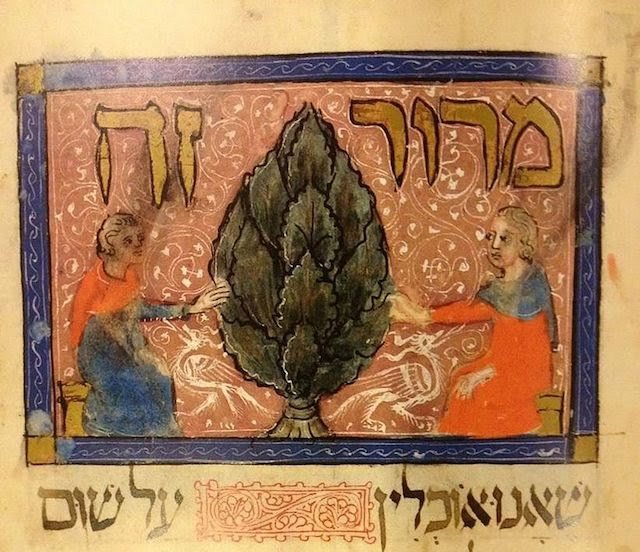A detail from the Sarajevo Haggadah, in which maror, the bitter herb, is illustrated with an artichoke.
Globe artichoke (Cynara scolymus)
Artichoke button
Globe artichoke is a vegetable crop that was highly popular among the Roans nd Ancient Egyptians. The unopened flower heads are eaten. In herbal medicine, these flower heads, as well as the leaves are often used as medicine for various liver and digestive disorders, they just so happen to make a great bitter. The main bitter constituent, cynarin, stimulates the liver to produce bile, which then goes to the gallbladder for storage. Upon its release it is used to aid in the breakdown and absorption of nutrients. Bile is made with cholesterol, and part of the benefits of globe artichokes bitter constituent and liver stimulating action, is to reduce cholesterol by releasing it as bile. Globe artichoke also provides antidiabetic, antioxidant, and hepatoprotective (liver protecting) effects. As with any bitter, artichoke bitters are best taken before a meal, and on a regular basis.

What do you have as a bitter herb ? Never thought of Artichoke.
Bitter Herbs of the Bible: A list of bitter herbs mentioned in the Bible focused on the original bitter herbs likely used by the Hebrews during Passover. Among them are the following:
Chicory
Coriander
Dandelion
Endive
Horehound
Mint
Sorrel
Sow-thistle
Wild lettuce
Wormwood
For the Passover Seder ceremony, bitter herbs symbolize the embittered slavery experienced in Ancient Egypt. The herbs ensure that this history is never forgotten, that it is taught each and every Passover. The bitter herbs commonly used today are horseradish and (Romaine) lettuce.